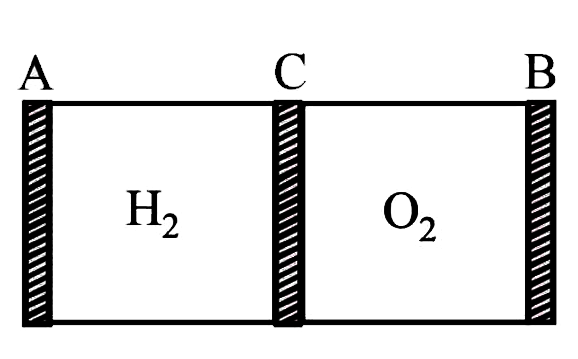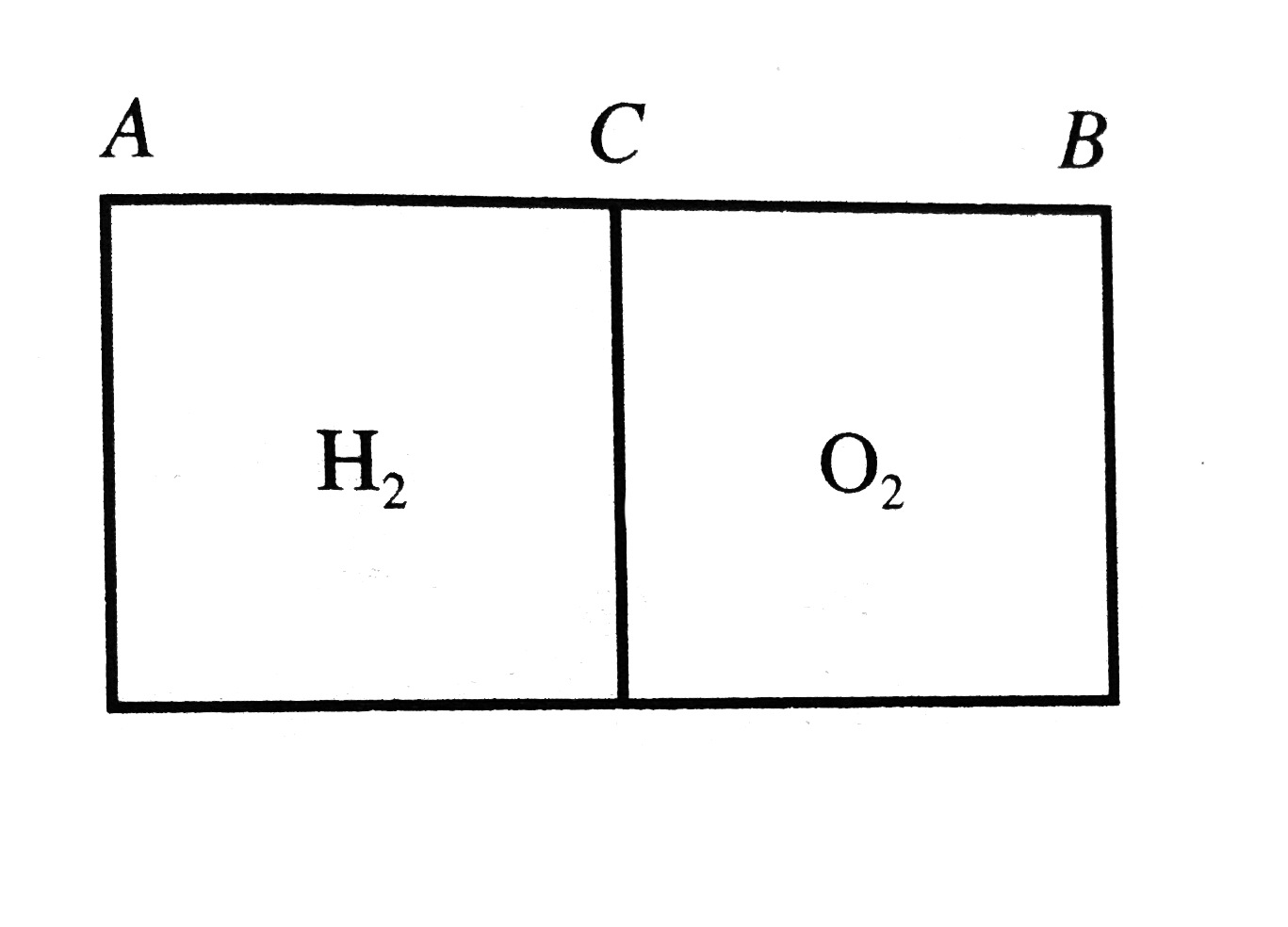AB is a cylinder of length 1m fitted with a thin flexible diaphragm C at middle and two other thin flexible diaphragms A and B at the ends. the portions AC and BC contain hydrogen and oxygen gases respectively. The diaphragms A and B are set into vibrations of the same frequency. The minimum frequency of these vibrations for which for diaphragm C is a node is 1.65×10y Hz (Under the conditions of the experiment velocity of sound in hydrogen is 1100 m/s and in oxygen 300 m/s). Then y
The correct Answer is:3
Topper's Solved these Questions
- WAVE MOTIONBOOK - AAKASH SERIESCHAPTER - WAVE MOTIONEXERCISE - PRACTICE SHEET ADVANCED (LINKED COMPREHENSION TYPE QUESTIONS)
5 Videos
- UNITS AND MEASUREMENTSBOOK - AAKASH SERIESCHAPTER - UNITS AND MEASUREMENTSEXERCISE - EXERCISE -3
66 Videos
- WAVE MOTION AND SOUNDBOOK - AAKASH SERIESCHAPTER - WAVE MOTION AND SOUNDEXERCISE - PROBLEMS (LEVEL - II)
81 Videos
Similar Questions
AB is a ccylinder of length 1m fitted with a thin flexible diaphragn C at the middle and other thin flexible diaphragms A and B at the ends. The portions AC and BC contain hydrogen and oxygen gases respectively. The diaphragms A and B are set into vibrations of same frequency. what is the minimum frequency of these vibrations for which diaphragms C is a node? (Under the conditions of experiment vH2=1100m/s, v_(0_(2) = 300m//s).

View SolutionAB is a cylinder of length 1.0m fitted with a thin flexible diaphragm C at the middle and two others thin portions ACandBC contains hydrogen and oxygen gases , respectively . The diaphragms AandB are set into vibrations of same frequency . What is the minimum frequency of these vibrations for which the diaphragm C is a node ? Under the conditions of the experiment , the velocity of sound in hydrogen is 1100m/s and in oxygen is 300m/s.

View Solution
Knowledge Check
the diaphragm in rabbit is a
Agap between the incisor and premolar teethBmembrane which surrounds and protects the brainCmembrance which lies between the external auditory meatus and tympanis carvity of the earDpartition of muscular septum separating the thoracic cavity from abdominal cavityVaginal diaphragm is
ASpermicidalBAble to prevent descent of ovaCable to prevent sperm contact with ovumDOivcidalAt the time of inspiration, the diaphragm
AExpandsBContractsCRelaxesDDoes not undergo any change
A cylinder of length 1m is divided by a thin perfectly flexible diaphragm in the middle. It is closed by similar flexible diaphragams at the ends. The two chambers into which it is divided contain hydrogen and oxygen. The two diaphragms are set in vibrations of same frequency. What is the minimum frequency of these diaphragms for which the middle diaphragm will be motionless? Velocity of sound in hydrogen is 1100m/s and that in oxygen is 300m/s.
View SolutionA cylinder of length 1m is divided by a thin perfectly flexible diaphragm in the middle. It is closed by similar flexible diaphragams at the ends. The two chambers into which it is divided contain hydrogen and oxygen. The two diaphragms are set in vibrations of same frequency. What is the minimum frequency of these diaphragms for which the middle diaphragm will be motionless? Velocity of sound in hydrogen is 1100m/s and that in oxygen is 300m/s.
View SolutionVaginal diaphragm is
View SolutionA hollow cylinder of length 1m is divided by a thin flexible by a thin flexible diaphragm at a distance one-third the length of the cylinder. It is closed by two other flexible diaphragms at the ends. Of the two chambers into which it is divided, the longer one contains hydrogen and the other oxygen. The two end diaphragms are set into vibrations of the same frequency. what are the frequencies of the end diaphragms for which the middle diaphragm will be motionless? Velocity of sound in hydrogen =1100ms−1 and that in oxygen =300ms−1.
View SolutionContraction of diaphragm
View Solution
